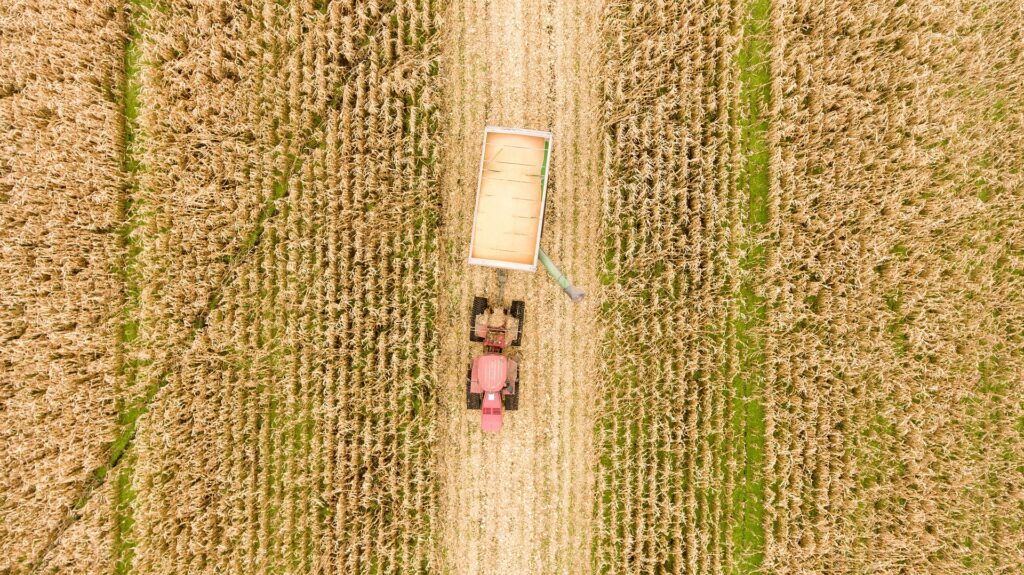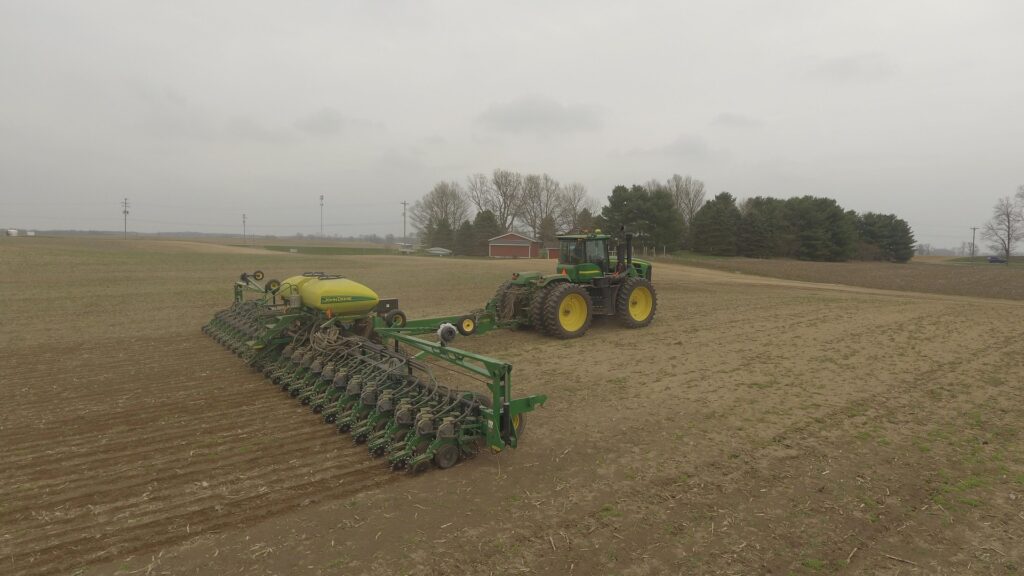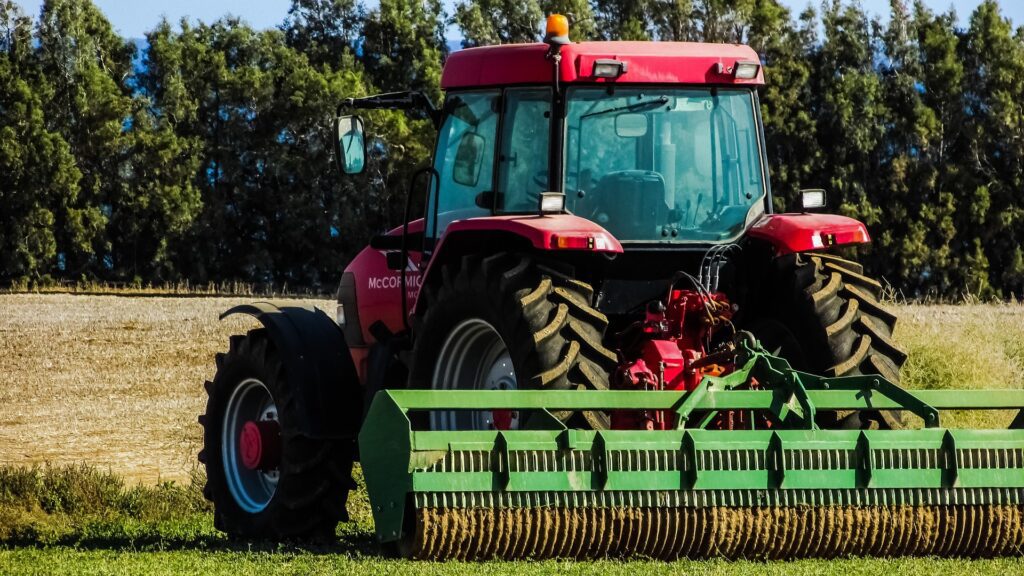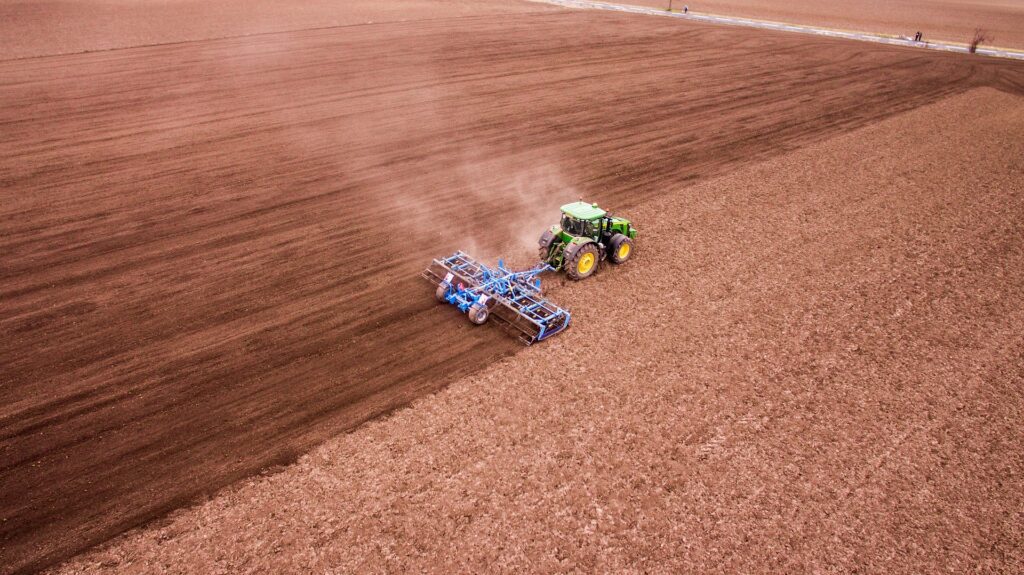Table of Contents
Introduction
Farm Machinery Agriculture is the backbone of many economies around the globe, providing food and employment for millions of people. Over the years, farming practices have evolved significantly, transitioning from manual labor-intensive methods to mechanized processes. This shift has been largely driven by the advent and advancement of farm machinery. Today, tractors, ploughs, harvesters, and other equipment are integral components of farming operations, enabling farmers to cultivate more land in less time and with greater precision.
The importance of farm machinery extends beyond mere efficiency; it is also a key factor in the personal and professional success of farmers. By leveraging machinery, farmers can not only increase their income but also improve their quality of life. Professionally, farm machinery helps farmers stay competitive in the market, build a strong reputation, and expand their operations.
In this article, we will explore the benefits of farm machinery, discuss the common types used in agriculture, and examine how it contributes to personal and professional success. We will also touch upon the challenges associated with farm machinery and look at future trends in this sector.

Benefits of Farm Machinery
Farm machinery offers numerous benefits that have transformed the way farming is conducted. Here are some of the most significant advantages:
Increased Efficiency
Farm machinery has revolutionized the agricultural sector by enabling farmers to cultivate more land in less time. This increased efficiency is crucial for meeting the food demands of a growing global population while minimizing the strain on natural resources. Here are some key aspects of how farm machinery contributes to increased efficiency:
Mechanization of Labor-Intensive Tasks
- Automation of Manual Labor: Farm machinery automates tasks such as plowing, planting, and harvesting, which were previously labor-intensive. This automation allows farmers to accomplish these tasks in a fraction of the time, significantly increasing overall efficiency and productivity2.
- Reduced Labor Costs: By reducing the need for manual labor, farm machinery helps farmers save on labor costs. This is particularly beneficial in regions experiencing labor shortages or high labor costs12.
Precision Farming
- Data-Driven Decisions: Modern farm machinery often integrates technologies like GPS, satellite imaging, and IoT devices. These technologies enable farmers to make data-driven decisions, ensuring that every action on the farm is optimized for performance3.
- Precision Application of Inputs: Machinery allows for the precise application of water, fertilizers, and pesticides. This targeted approach maximizes resource efficiency, reduces waste, and minimizes environmental impact23.
Energy Efficiency
- Optimized Equipment Use: Simple adjustments like maintaining tractor tires and reducing turning time can significantly improve energy efficiency. Proper maintenance of equipment, such as cleaning air/fuel filters and lubricating motors, also reduces fuel consumption4.
- Efficient Field Operations: Practices like reduced-till farming and selecting the right equipment for specific tasks can minimize energy use and enhance overall field efficiency4.
Enhanced Productivity
- Timely Operations: Mechanized planting and harvesting ensure that these critical tasks are performed on time, which is essential for maximizing yield potential and minimizing losses due to weather or pests2.
- Improved Crop Quality: The precision application of inputs facilitated by machinery helps optimize growing conditions, leading to healthier plants and higher-quality produce2.
Case Studies and Examples
Several countries have seen significant improvements in agricultural productivity through the adoption of farm machinery. For instance, in India, farm mechanization has been instrumental in increasing agricultural productivity, with the government actively promoting mechanization through digital platforms8.
In the United States, farmers have benefited from precision agriculture technologies that allow for more efficient use of resources and improved crop yields. This approach has not only increased productivity but also helped reduce the environmental impact of farming
Reduced Labor Costs
Another significant advantage of farm machinery is the reduction in labor costs. Manual farming requires a large workforce, especially during peak seasons like planting and harvesting. By mechanizing these processes, farmers can significantly reduce their labor expenses. This is particularly beneficial in regions where labor shortages are common or where labor costs are high.
Improved Yields
Farm machinery also plays a crucial role in improving crop yields. Precision farming equipment ensures that seeds are planted at the right depth and spacing, and fertilizers and pesticides are applied accurately. This precision reduces waste and ensures that crops receive the optimal amount of nutrients, leading to healthier plants and higher yields.
Environmental Benefits
In addition to economic benefits, farm machinery can also contribute to environmental sustainability. By optimizing the use of resources such as water and fertilizers, machinery helps reduce waste and minimize the environmental impact of farming. For example, precision irrigation systems can deliver water directly to the roots of plants, reducing runoff and conserving this precious resource.


Types of Farm Machinery
Farm machinery encompasses a wide range of equipment designed to perform various tasks throughout the farming cycle. Here are some of the most common types:
Tractors
Tractors are perhaps the most versatile and essential piece of farm machinery. They serve as the power source for many other implements, such as ploughs, seeders, and sprayers. Tractors come in different sizes and horsepower ratings, making them suitable for small-scale to large-scale farming operations.
Ploughs and Harrows
Ploughs are used to break up and turn over soil to prepare it for planting. Harrows, on the other hand, are used to smooth out the soil and remove weeds. These implements are crucial for soil preparation and help ensure that the soil is in optimal condition for planting.
Seeders and Planters
Seeders and planters are designed to sow seeds at the correct depth and spacing. These machines ensure that seeds are evenly distributed across the field, which is essential for achieving uniform growth and maximizing yields.
Sprayers and Harvesters
Sprayers are used to apply fertilizers, pesticides, and other treatments to crops. Harvesters, as the name suggests, are used to collect mature crops. Both of these machines are critical for maintaining crop health and ensuring efficient harvesting.
Personal Success with Farm Machinery
Farm machinery not only enhances the efficiency and productivity of farming operations but also contributes significantly to the personal success of farmers. Here are some ways in which machinery impacts personal success:
Increased Income
By increasing yields and reducing costs, farm machinery helps farmers earn higher incomes. With more efficient farming practices, farmers can produce more with less, leading to increased profitability. This financial stability allows farmers to invest in their operations, expand their businesses, and improve their living standards.
Reduced Physical Strain
Manual farming is physically demanding and can lead to health issues over time. By mechanizing farming tasks, farmers can reduce the physical strain associated with manual labor. This not only improves their health but also allows them to work longer hours without fatigue, leading to a better quality of life.
Enhanced Lifestyle
With increased efficiency and profitability, farmers can enjoy a better lifestyle. They can afford better housing, education for their children, and other amenities that improve their overall well-being. Additionally, the reduced workload allows farmers to have more leisure time, enabling them to pursue hobbies or spend quality time with family.
Professional Success with Farm Machinery
Professional success in agriculture is deeply intertwined with the effective use of farm machinery. This equipment not only enhances productivity and efficiency but also plays a crucial role in building a farmer’s professional reputation, expanding their operations, and staying competitive in the market. Here’s a detailed explanation of how farm machinery contributes to professional success:
Professional Success with Farm Machinery
Competitive Advantage
- Efficiency and Productivity: Farm machinery allows farmers to cultivate more land in less time, leading to higher yields and better quality produce. This efficiency gives farmers a competitive edge in the market, enabling them to meet demand more effectively than those relying solely on manual labor12.
- Precision Farming: Modern machinery often incorporates precision farming technologies, such as GPS-guided tractors and automated irrigation systems. These technologies ensure that resources like water and fertilizers are used optimally, reducing waste and enhancing crop quality. This precision helps farmers produce consistent, high-quality crops that attract premium prices13.
- Market Presence: By leveraging advanced machinery, farmers can maintain a strong market presence. They can supply produce consistently and reliably, which is crucial for building long-term relationships with buyers and maintaining contracts2.
Reputation and Credibility
- Consistency and Reliability: Using modern farm machinery helps farmers deliver consistent results. This consistency builds trust with suppliers, buyers, and other stakeholders in the agricultural industry. A reputation for reliability is essential for attracting new customers and securing contracts2.
- Adoption of Technology: Farmers who embrace advanced machinery are seen as innovative and forward-thinking. This perception enhances their professional credibility, making them more attractive to investors, partners, and potential buyers3.
- Quality of Produce: The use of machinery ensures that crops are handled and processed with care, resulting in higher quality produce. This quality is a key factor in building a strong reputation among consumers and wholesalers1.
Opportunities for Expansion
- Increased Capacity: With machinery, farmers can manage larger areas of land more efficiently. This increased capacity allows them to expand their operations, diversify their crops, and explore new markets2.
- Economies of Scale: By producing more with less labor, farmers can achieve economies of scale. This efficiency enables them to reduce costs per unit, making their products more competitive in the market and increasing their profit margins1.
- Access to New Markets: The ability to produce high-quality crops consistently opens up opportunities to enter new markets, both domestically and internationally. This expansion can significantly increase a farmer’s income and professional standing2.


Technological Advancements and Training
- Precision Agriculture: The integration of precision agriculture technologies into farm machinery has revolutionized farming practices. This technology allows for precise application of inputs, reducing waste and environmental impact while improving yields13.
- Technician Training: The increasing complexity of modern farm equipment requires specialized technicians. Programs like those in Texas offer comprehensive training in precision farming technologies, ensuring that there is a skilled workforce available to maintain and optimize machinery3.
- Data-Driven Farming: Modern machinery often includes data collection systems that provide insights into soil health, crop growth, and resource usage. This data helps farmers make informed decisions, further enhancing their professional success by optimizing operations3.
In summary, farm machinery is a critical component of professional success in agriculture. It enhances efficiency, builds reputation, and provides opportunities for expansion. As technology continues to advance, the role of machinery in professional success will only grow, making it essential for farmers to stay updated with the latest trends and innovations.
Competitive Advantage
In today’s competitive agricultural market, using modern farm machinery gives farmers a significant edge. By adopting efficient and productive farming practices, farmers can produce high-quality crops at competitive prices, making them more attractive to buyers. This competitive advantage helps farmers maintain a strong market presence and build long-term relationships with customers.
Reputation and Credibility
Efficient farming operations using modern machinery enhance a farmer’s professional reputation. When farmers consistently deliver high-quality produce on time, they build credibility with suppliers, buyers, and other stakeholders in the agricultural industry. A good reputation is essential for attracting new customers, securing contracts, and accessing financing opportunities.
Opportunities for Expansion
The agricultural machinery sector offers numerous opportunities for expansion, driven by technological advancements, increasing demand for food security, and government initiatives to enhance agricultural productivity. Here are some key areas where expansion opportunities exist:
Technological Advancements
- Precision Farming and Automation: Technologies like precision agriculture and autonomous machinery are transforming farming practices by enhancing efficiency and reducing labor costs. These innovations provide opportunities for companies to develop and market advanced equipment that can optimize resource use and improve crop yields13.
- Digital Farming Platforms: The integration of IoT and big data analytics in farming is creating new opportunities for companies to develop software solutions that provide actionable insights to farmers. These platforms can help farmers make informed decisions, optimize operations, and improve profitability4.
- Sustainable Equipment: As environmental concerns grow, there is a rising demand for environmentally friendly machinery. Companies can focus on developing equipment that meets sustainability standards, reducing emissions, and promoting eco-friendly farming practices4.
Emerging Markets
- Asia Pacific Region: Countries like India and China are experiencing rapid growth in their agricultural sectors, driven by government initiatives to increase food productivity. This presents opportunities for manufacturers to expand into these markets by offering mechanization solutions tailored to local needs56.
- Custom Hiring Centers: In regions with small landholdings, custom hiring centers for farm machinery can provide access to equipment for small-scale farmers, enhancing their productivity and efficiency. This model is particularly effective in countries like India, where land fragmentation is common2.
Market Segments
- Tractors and Harvesting Machinery: These segments are expected to lead market growth due to high demand for efficient farming practices. Companies can focus on developing high-performance tractors and harvesting equipment that meet the needs of both small-scale and large-scale farmers5.
- Vertical Farming and Urban Agriculture: The rise of vertical farming and urban agriculture presents opportunities for companies to develop specialized equipment for indoor and urban environments. This includes hydroponic systems, LED lighting solutions, and other technologies that support year-round crop production in urban settings4.
Government Initiatives
- Sub-Mission on Agricultural Mechanization (SMAM): In countries like India, government initiatives like SMAM aim to promote farm mechanization by providing subsidies and support for acquiring machinery. This creates opportunities for companies to supply equipment to farmers and participate in government-backed programs26.
- Regulatory Support: Governments are increasingly providing regulatory support to encourage the adoption of modern agricultural machinery. Companies can leverage these policies to expand their operations and offer compliant equipment that meets local standards6.
Challenges and Opportunities
While there are significant opportunities for expansion, challenges like high costs, limited rural access, and reliance on imports must be addressed. Companies can focus on developing affordable, reliable, and locally manufactured equipment to overcome these challenges and capitalize on emerging trends36.
Strategies for Expansion
- Market Analysis: Conduct thorough market research to understand local needs and trends. This helps in developing targeted products and services that meet specific market demands.
- Partnerships and Collaborations: Form alliances with local businesses, cooperatives, or government agencies to enhance market penetration and access to resources.
- Investment in Technology: Continuously invest in R&D to stay ahead of technological advancements and offer innovative solutions that improve farming efficiency and sustainability.
- Localization of Production: Focus on local manufacturing to reduce reliance on imports, improve product reliability, and enhance after-sales service support
While farm machinery offers numerous benefits, there are also challenges associated with its use. Here are some of the key challenges and future directions in this field:


Maintenance Challenges
One of the significant challenges with farm machinery is maintenance. Regular maintenance is crucial to ensure that machinery operates efficiently and effectively. However, maintaining complex equipment can be time-consuming and costly. Farmers must balance the need for efficient operations with the costs of maintaining their machinery.
Technological Advancements
The future of farm machinery is closely tied to technological advancements. Precision agriculture, which involves using data and technology to optimize farming practices, is becoming increasingly popular. Technologies like drones, satellite imaging, and autonomous tractors are transforming the way farming is conducted. These advancements promise to further increase efficiency, reduce waste, and enhance sustainability.
Sustainability and Environmental Impact
As concern about climate change and environmental sustainability grows, the agricultural sector is under pressure to reduce its environmental footprint. Farm machinery can play a crucial role in this effort by optimizing resource use and minimizing waste. Future developments in farm machinery will likely focus on sustainability, with innovations aimed at reducing emissions, conserving water, and promoting eco-friendly farming practices.
Conclusion
Farm machinery is a vital component of modern agriculture, offering numerous benefits that contribute to both personal and professional success. By increasing efficiency, reducing labor costs, and improving yields, machinery helps farmers achieve financial stability and enhance their quality of life. Professionally, it provides a competitive edge, builds reputation, and offers opportunities for expansion.
As the agricultural sector continues to evolve, embracing technological advancements and sustainable practices will be essential for future success. By leveraging farm machinery effectively and addressing the challenges associated with its use, farmers can ensure a prosperous and sustainable future for themselves and their communities.
Great resource for AI tools! As someone who values efficiency and security, it’s reassuring to find curated solutions like the AI Repurpose Assistant that streamline workflows without the guesswork.
Understanding betting patterns in baccarat can significantly enhance your gameplay strategy. Platforms like Jili App offer diverse games and user-friendly experiences, making it easier for players to apply these insights effectively.
Roulette strategies often miss the mark, but creative tools like Sprunki Incredibox remind us why play matters-music and math both thrive on thoughtful experimentation.
Lovart’s AI-driven design approach is a game-changer, especially with its tri-modal interaction and Figma integration. As a pro, I see huge potential for speeding up creative workflows. Check it out at Lovart!
Roulette and slots like Super PH both rely on probability, but the thrill of 1024 ways to win adds a unique layer of strategy and excitement.
Keno strategies often rely on math and patterns-something JLJLPH enhances with its top-tier slots and live games. Worth checking out for both fun and insight. Try it at JLJLPH.